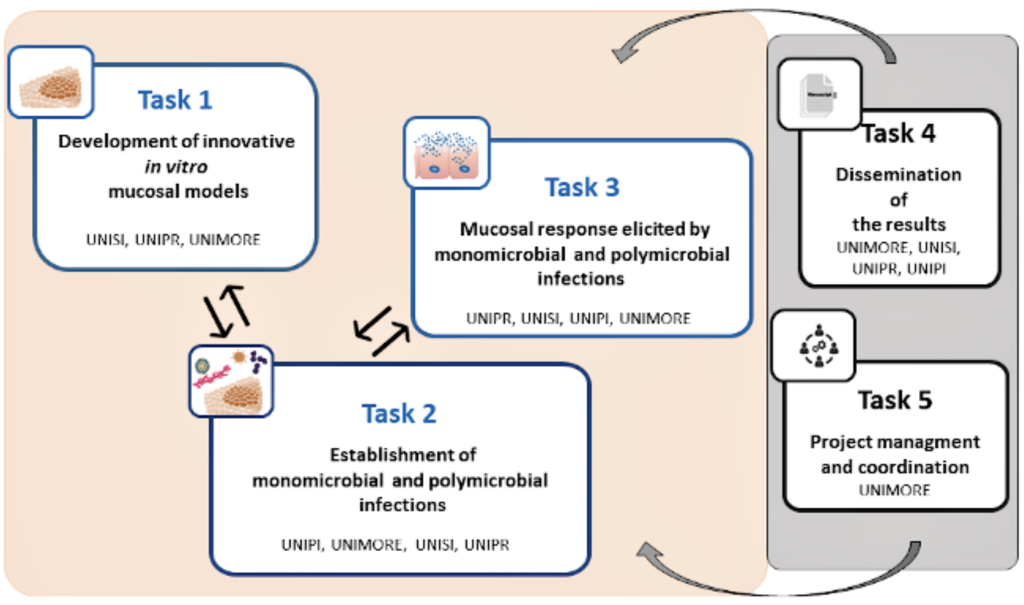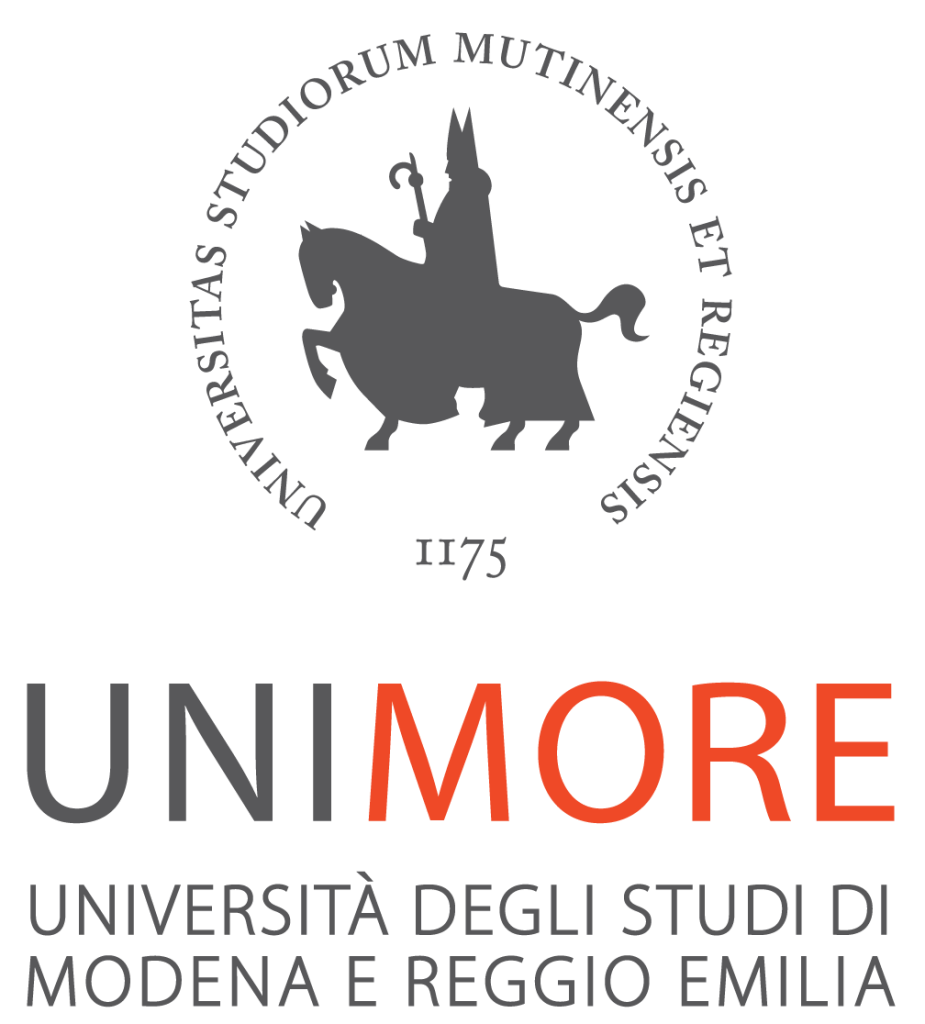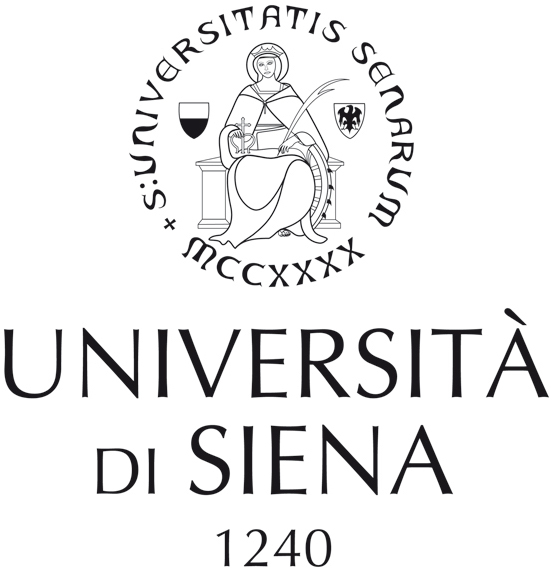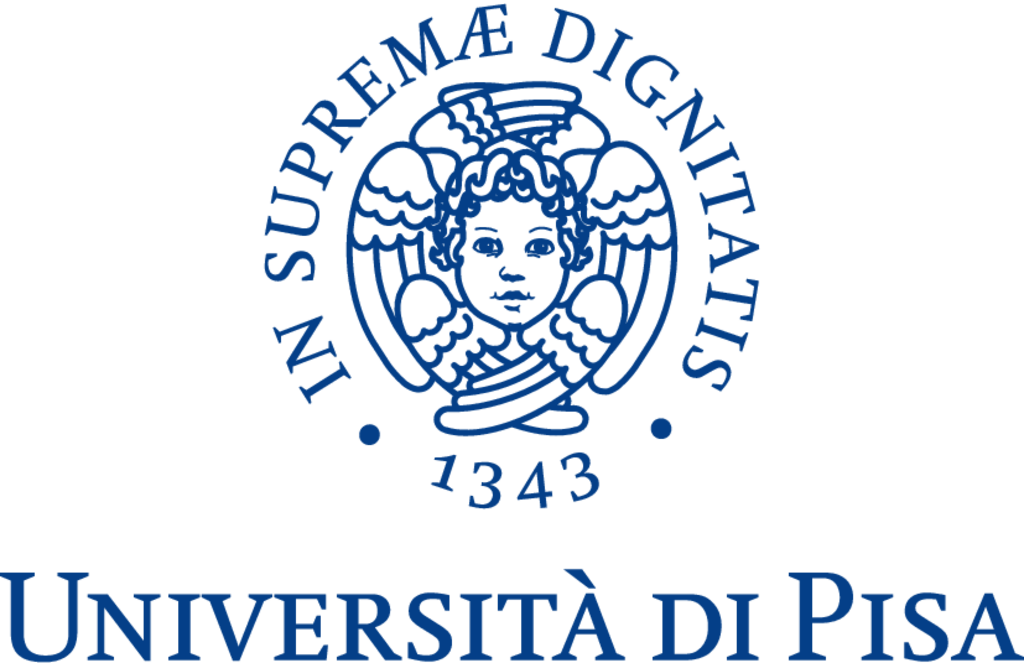Progetti di Ricerca di rilevante Interesse Nazionale (PRIN)
Innovative mucosal models as prototypes for in-depth studies on the pathogenesis of monomicrobial and polymicrobial infections
The PRIN-2022 Project, entitled “Innovative mucosal models as prototypes for in-depth studies on the pathogenesis of monomicrobial and polymicrobial infections”, aims at the development of innovative models for the study of microbial pathogenesis and host response at the mucosal level, focusing on the respiratory and genital systems, where presence of different pathogens, often clinically relevant, is still little understood.
The project, coordinated by Prof. Elisabetta Blasi (Principal Investigator), involves Prof. Claudio Cermelli, Dott. Andrea Ardizzoni and Dott. Arianna Sala at the UNIMORE and the contribution of colleagues from other universities (Siena, Parma, and Pisa), with whom there is already an intense and long collaboration.
In vitro models of respiratory or genital epithelial cells will be set up in monolayers, differentiated multilayers, or within microfluidic systems; moreover, to mimic the conditions in vivo at the mucosal level, immune cells will be added, such as macrophages or neutrophils, and/or tissue soluble factors, such as artificial vaginal fluids or antibodies. Once developed, these models of respiratory and genital mucosa will be subjected to mono- or poly-microbial infection, using pathogens of clinical relevance in these two anatomical districts. As regards the respiratory mucosa, the bacterium Streptococcus pneumoniae and the human Coronavirus OC43 have been selected, while the studies on the genital mucosa, will employ the fungi Candida albicans/parapsilosis and the virus Herpes Simplex 2. Phenotypic and molecular aspects will be investigated, focusing on host-pathogen interactions in the monomicrobial infection protocols, and on host-pathogen or pathogen-pathogen interactions in the dual infection protocols. Mutant strains will be used to identify and characterize new traits of microbial virulence and their impact on host reactivity.
This project aims to establish representative, ductile, and effective prototypes for new studies on the pathogenesis of mucosal infections caused by single pathogens or multiple microbes, with emphasis on both sides, the host behaviour, and the impact of single versus multiple pathogens at tissue level. Once established, these mucosal prototypes will be easily applied to other host-pathogen models, further enhancing their relevance in preclinical research. Likely, by a better knowledge on the pathogenesis of respiratory and genital infections, innovative strategies will become available to combat more effectively mucosal infections. Finally, the availability of these in vitro models could contribute significantly to the reduction (and future replacement) of animal testing.
Statement by Prof. Elisabetta Blasi (UNIMORE): Most pathogens enter the human body through the mucosae. Infection and possibly disease can only develop if the germ can colonize, damage and somehow overcome such anatomical barrier. Often, the presence of a first pathogen favors a second infection, implying a microbial symbiosis in turn detrimental to the host. Accordingly, in fragile subjects, polymicrobial infections are often clinically relevant and very difficult to treat. The mechanisms occurring at tissue level and the potential interactions between pathogens and host are still poorly understood. The aim of this project is to develop in vitro prototypes that, by closely mimicking the peculiar conditions of respiratory or genital mucosa, will allow in-depth investigations on the matter. In turn, studies on this direction will allow a better comprehension of mucosa-associated infections, facilitating strategies to counteract and limit their clinical impact.
Principal Investigator (PI):
Associated Investigators:

Full Professor in Microbiology and Clinical Microbiology
University of Parma – Microbiology and Virology Research Unit
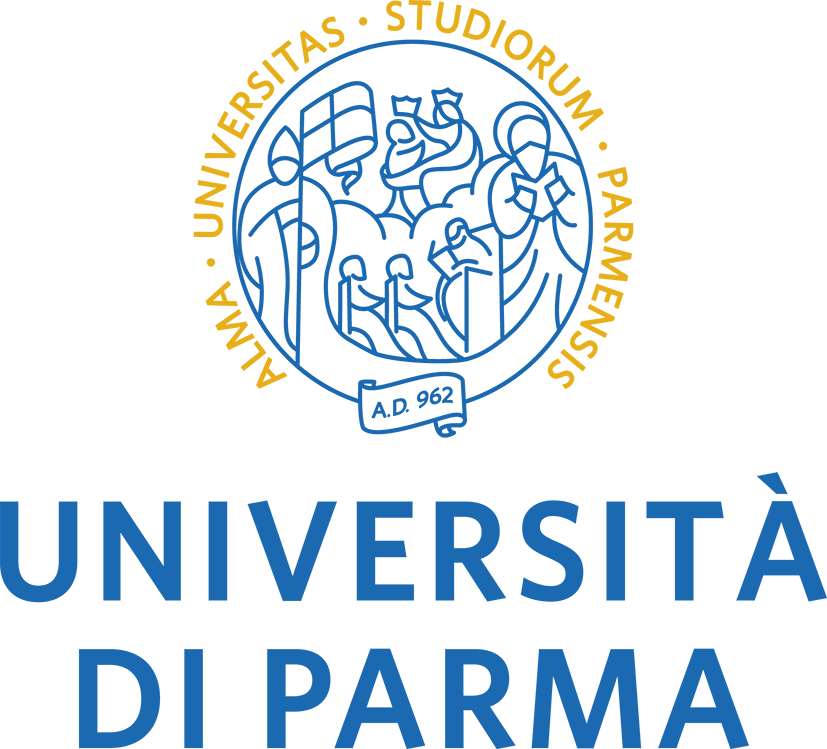
Project Strategy:
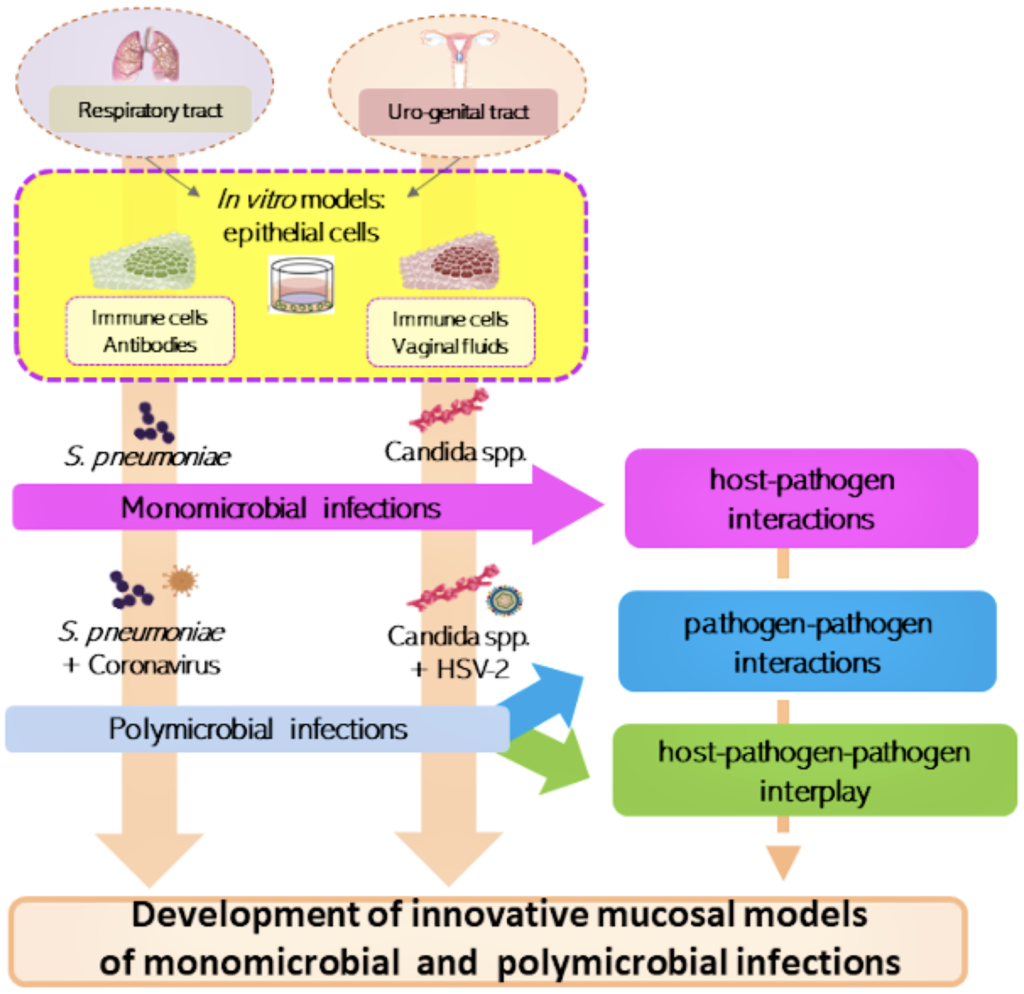
Project Development and Involvement of the varius Research Units:
